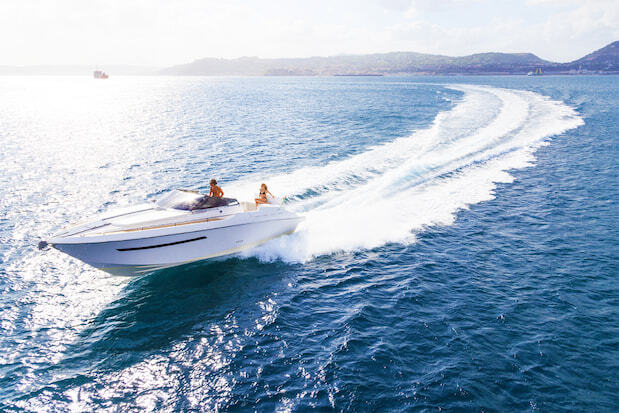Six Simple Boating Tips
Posted by Pacer on 6th Dec 2018
Six Simple Boating Tips

*This Article was published on 12/06/2018 and was updated 9/26/2022*

When it comes to boating, one thing to keep is mind is that you never stop learning. There is always new information and tricks out there to learn and to share. After considering some of the most important aspects for boaters to take note of, we developed this quick list to share with you. Whether you're a seasoned boating veteran with decades of experience or you're new to boating altogether, there should be something here for you to learn that can make your boating experience a little better.
At first glance some of these tips may seem obvious, however, you'd be surprised how many of these get overlooked. It's far too easy to become complacent and comfortable with things we are familiar with, and boating is no exception. When out of the water complacency can lead to disastrous results. Remember, this list is just a starting point, there are many, many more tips out there. These are just a few that we feel are some of the most important. By paying attention to these six tips you're sure to make you're boating experience the absolute safest and most enjoyable that it can be.
1. Always Check and be Aware of the Weather
![]()
More than just checking the weather, this is about being aware of the weather. This seems like a no-brainer yet even long-time boaters can forget this basic rule. The weather is going to determine your day whether you like it or not. See what I did there? By being aware of the weather and having back up plans you are doing your best to prevent what could otherwise be a catastrophic day. Check the weather a few days prior, the morning of, and throughout your trip. It is important to remember that the weather can change at a moments notice and forecasters can be wrong. It is with this in mind that we recommend always having a backup plan in case the weather takes a turn for the worst.
"More than just checking the weather, this is about being aware of the weather."
2. Carry the Proper Equipment Required by State Law
![]()
Each state has laws that govern what items must be aboard your boat. This can vary greatly depending on where you are at and the size of your vessel. The truth is, the water is a dangerous place and in some states anyone can operate a boat regardless of experience. Without experience how do you know what equipment you'll need? That's why the state has set guidelines to follow. In all honesty, what the state requires is mostly likely not enough and you'll need more than what they tell you, but the list is a great place to start. If you're in Florida, you can find the list here. If you live in another state, a quick internet search should provide the list you need. Remember, the items you need to have varies depending on the size of your vessel. It also doesn't hurt to keep a running checklist aboard your boat that you can add to over time. This way you ensure that you have everything you need, every time.
Here is a sample checklist. Simply click the link to the right to be taken to a downloadable PDF of the checklist. Even if this checklist does not apply to your state, if may contain some items that you will want to add to your boat.
3. Make Sure all Life Vests fit Properly

![]()
Life vests are meant to keep people afloat until helps arrives. If the vest doesn't fit properly, then it does no good. In fact, an incorrectly fitted life vest can actually cause more harm than good. People with good swimming ability have drowned as a result of loose fitting vests. Now, let's talk about children for a moment. When you are on the water, whether operating a vessel or not, a child's safety needs to be your priority. Children do not have the faculties or abilities that adults have, and as such, the water is a much more dangerous place for them. If you will be taking children on the water make sure that every life vest fits snugly and securely. Go ahead and check it twice just to be safe. Make sure that everyone is aware of safety and never, ever overload your boat.
4. Practice Backing Your Trailer Up
![]()
There's nothing like watching people who don't know what they're doing back up a trailer. Sometimes even seasoned pros have trouble with the dreaded trailer, but it's really not that hard. By practicing backing into the water you will learn to get a good feel for the proper speed, direction, and timing. For one, go slow. If other people are waiting to use the boat ramp, they can wait. Don't risk your equipment or safety to hurry up for someone else. Practice makes perfect, so try backing up in the parking lot if you need a little extra experience. Here's a handy trick for you. When backing up with your boat trailer, place your hands at the bottom of the steering wheel. In this way, when you turn left, the trailer will go left. When you turn right, so will the trailer. This will help you from getting turned around.
"When backing up with your boat trailer, place your hands at the bottom of the steering wheel. In this way, when you turn left, the trailer will go left. When you turn right, so will the trailer."
5. Prepare a Float Plan

![]()
This may be the most important tip on this list. You would be surprised at how many people fail to create a float plan. What is a float plan? A float plan is a written document stating where you will be when out on the water and what time you expect to be back. You leave a float plan with at least one person you can trust if not two. This way, if there is an emergency someone will notify the coast guard when you don't return. Imagine the terror of capsizing while deep sea fishing and then realizing that no one knows where you are. Your chances of survival instantly drop dramatically. By having a float plan you help keep yourself and your passengers safe. Learn more about float plans and how to develop one here.
Here is a sample checklist. Simply click the link to the right to be taken to a downloadable PDF of the checklist. Even if this checklist does not apply to your state, if may contain some items that you will want to add to your boat.
6. Maintain Your Vessel
![]()
Boats are, for the most part, built to last. Just like with cars, people often forget to perform the properly scheduled maintenance. The last thing you want to deal with is engine or electrical trouble while out on the water. This could lead to all sorts of issues that could otherwise be avoided. By following a maintenance schedule, you ensure that your boat, it's electrical system, and its motor are all up to safety standards. While maintaining your vessel, you can always make enhancements or upgrades. Why not replace those old switch covers. Maybe your boat could use a new battery switch or maybe you can organize those wires a little better. Things like sealants or boots can go a long way to enhancing your boat and your overall boating experience.

These are just a few tips to get you started. Without proper knowledge and experience, a day on the water can quickly become disastrous. By following these six simple tips, and adding a few of your own, you can make your boating adventures safer and more enjoyable.


